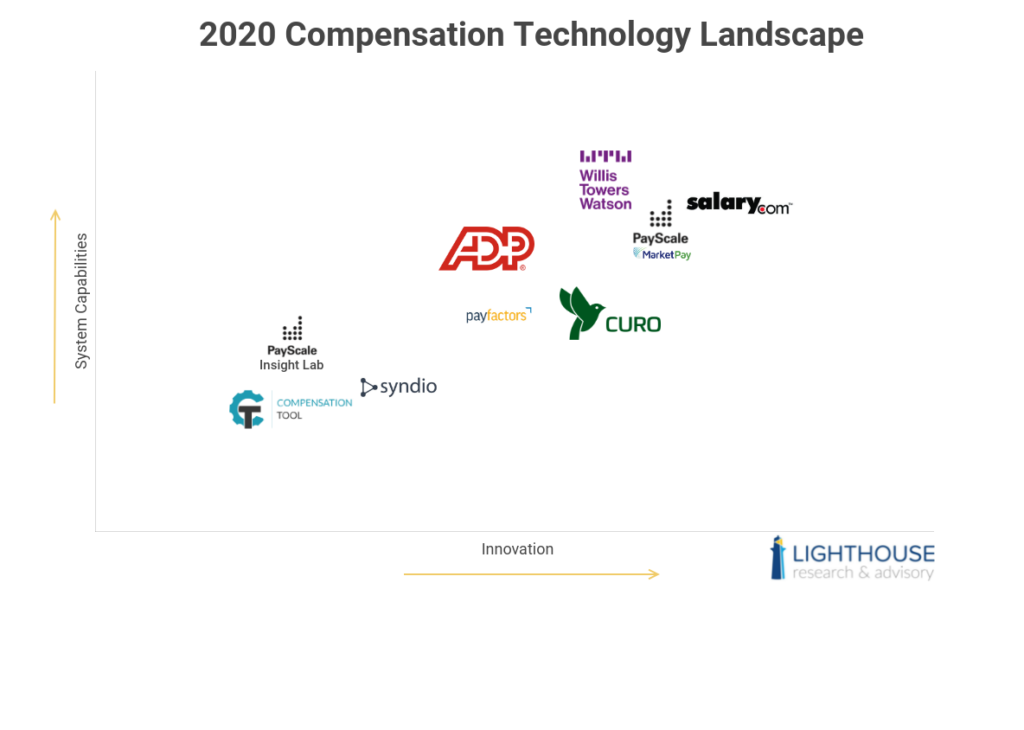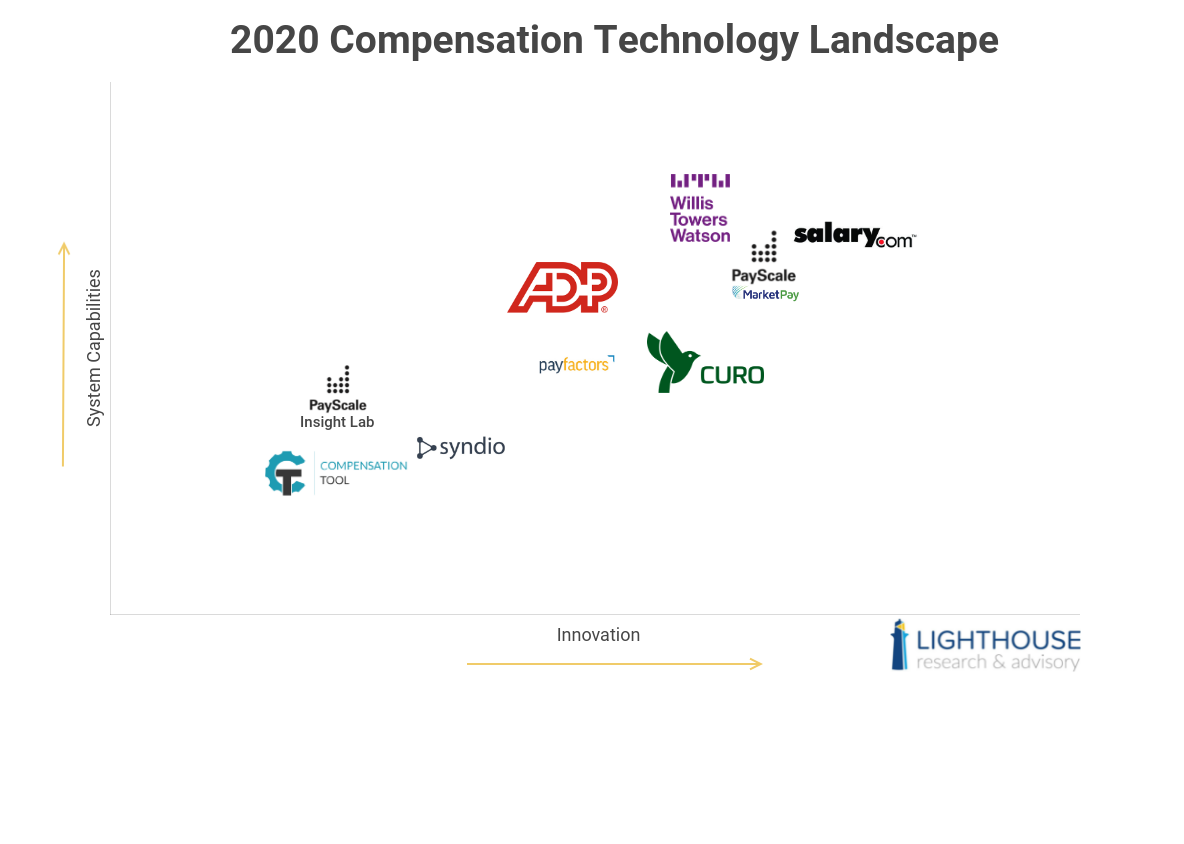Many employers spend more time and effort managing their $100 petty cash drawer than they do planning, strategizing, and managing a multimillion dollar compensation budget.
This was one of many surprising findings in our latest research effort, digging into the world of compensation technology and the buyer’s mindset, but it certainly wasn’t the only one. The resulting report provides an in-depth analysis of what buyers find most important, what data sources they are using, and what strengths each provider has in the market.
This research effort has been nearly a year in the making, including survey data from over 550 employers, research interviews with more than half a dozen technology and data providers, and executive interviews with business leaders to understand their needs and challenges around compensation. It is the most comprehensive look at the compensation technology market ever undertaken, and the insights gathered are going to support employers as they consider how to leverage compensation as a tool to attract and retain the right talent.
Why Compensation and Why Now?
Of all the areas we look at in our ongoing market research, why is compensation worth this deep analysis?
For starters, one of the key trends our team is watching over the coming year or two is the move in priority from “diversity” to equity and belonging. The conversation for businesses today is around how to be more actionable and intentional when it comes to creating inclusive workplaces, and a discussion about equity leads to some tangible, specific ways to make progress. One of those ways?
Pay equity.
We are seeing instances of employee activism related to pay equity, and more enterprise firms are making their approach public in an effort to demonstrate their commitment to creating an equitable work environment. For instance, Citigroup recently announced at 27% raw pay gap between men and women at the company, but the company is committing to improve it not just through nominal pay increases but by promoting women into leadership roles on a higher pay scale.
This is one example, but in the past this kind of information would have been kept very private from an organizational perspective. It’s one example of many that show that employers are trying to make the right strides.
This is a primary reason we explored the compensation landscape, but it’s certainly not the only one. How companies present compensation, manage the conversation, and respond in various situations can impact both the candidate and employee experiences (positively or negatively). Bottom line: this is bigger than just the pay rate by which someone’s job is set.
Click here to get the research
What to Expect in the Report
Analyzing some of the key providers in the marketplace that offer dedicated, standalone technology for compensation management is no easy task. It involves research briefings, demos, and analysis of each provider relative to the others. The graphic below illustrates the overall landscape, and the accompanying report gives details on what each provider offers to support this layout.

Additionally, for employers that are thinking about purchasing compensation technology, we offer a buyer’s guide with tons of research, insights, and practical examples to create a more informed buying process. One of the highlights of this research is an analysis of high-performing employers (those with better revenue, retention, and engagement metrics) and what they do differently. For instance, high performers:
- Create more diverse selection teams
- Use more data sources
- Leverage purpose-built compensation technology (instead of Excel or nothing at all)
If you would like to know more about the research or how we can help your firm with evaluating providers, please feel free to reach out to our team.

Ben Eubanks is the Chief Research Officer at Lighthouse Research & Advisory. He is an author, speaker, and researcher with a passion for telling stories and making complex topics easy to understand.
His latest book Talent Scarcity answers the question every business leader has asked in recent years: “Where are all the people, and how do we get them back to work?” It shares practical and strategic recruiting and retention ideas and case studies for every employer.
His first book, Artificial Intelligence for HR, is the world’s most-cited resource on AI applications for hiring, development, and employee experience.
Ben has more than 10 years of experience both as an HR/recruiting executive as well as a researcher on workplace topics. His work is practical, relevant, and valued by practitioners from F100 firms to SMB organizations across the globe.
He has spoken to tens of thousands of HR professionals across the globe and enjoys sharing about technology, talent practices, and more. His speaking credits include the SHRM Annual Conference, Seminarium International, PeopleMatters Dubai and India, and over 100 other notable events.

